Sudan’s power-sharing govt., rebel groups sign landmark peace agreement
The Sudanese Transitional Government and the main rebel alliance, the so-called Revolutionary Front, have signed a historic peace deal aimed at ending 17-year-old regional conflicts in which hundreds of thousands of people have died.
“Today we have reached a peace agreement. We are happy. We have finished the mission,” said Tut Gatluak, the South Sudanese chief mediator, on Saturday, shortly before the signing of the landmark agreement that reached a year after the peace talks began in Juba, the capital of neighboring South Sudan.
Vice-President of Sudan’s power-sharing government Lieutenant General Mohamed Hamdan 'Hemeti' Dagolo, who played a leading role in the negotiations, hailed the peace deal as “a proud moment for the country.”
“Today is a proud day for Sudan. All parties have focused, engaged, and been relentless in our efforts to finalize this peace deal. The talks succeeded because we entered the negotiations as brothers, not foes,” Hemeti added.
Ministers and leaders of governments from neighboring countries as well as Egypt, Qatar, and Saudi Arabia also attended the signing ceremony in Juba.
“This signing of this agreement today is a significant day today for Sudan and South Sudan … it means an end to the suffering of many Sudanese people in different corners of Sudan and outside Sudan,” said Mini Arko Minawi, head of the Sudan Liberation Movement, which is one of the parties to the agreement.
The transitional government took power in Sudan in August 2019, four months after longtime leader Omar al-Bashir was ousted through a military coup following months of anti-government protests over dire economic conditions and soaring prices of basic commodities.
Bashir himself had come to power through a military coup in 1989.
Ending Sudan’s internal conflicts has been a top priority of the ruling council, which has since been seeking to make peace with the rebel groups, a key condition for the country’s removal from the United States’ so-called terror sponsor list.
The rebel groups - mainly from Sudan’s non-Arab minority - have been fighting Khartoum against what they see as economic and political injustice.
In Darfur, about 300,000 people have lost their lives since the armed rebellion broke out in 2003, according to the United Nations.
The conflict in South Kordofan and Blue Nile erupted in 2011 over unresolved issues from Sudan’s civil war, which lasted from 1983 to 2005.
No international intervention took place in the mediation, which was initiated and implemented only by the Sudanese.
“This is a peace that wasn't forced upon us. Rather it's a peace that the Sudanese people brought for themselves,” Hemeti said, stressing that it is vital that all parties stay within the framework of the deal.
The historic agreement covers key issues around security, land ownership, transitional justice, power sharing, and the return of the displaced. According to the deal, all rebel forces must be dismantled, paving the way for the integration of their fighters into the national army.
Hemeti called on the remaining armed groups in the country to join the peace process.
Iraqi resistance strikes airbase housing Israel’s ‘aggressor squadron’
Major Rafah invasion won’t defeat Hamas: White House
VIDEO | Iranians celebrate National Girls’ Day in Lady Fatima Masoumah’s Holy Shrine
UN to vote on Palestinian statehood as student protests continue
Houthi: Yemen to target Israel-linked ships regardless of destination
UK holds firm on arms exports to Israel despite Rafah invasion
Putin says Russia’s nuclear forces ‘always on alert’
New York Times’ Pulitzer Prize for Gaza war coverage a travesty of journalism


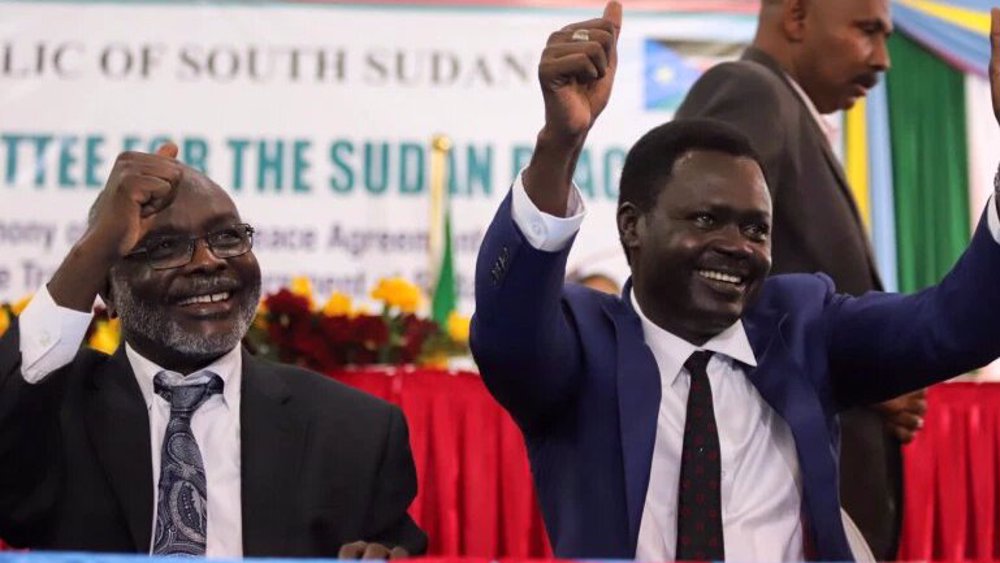

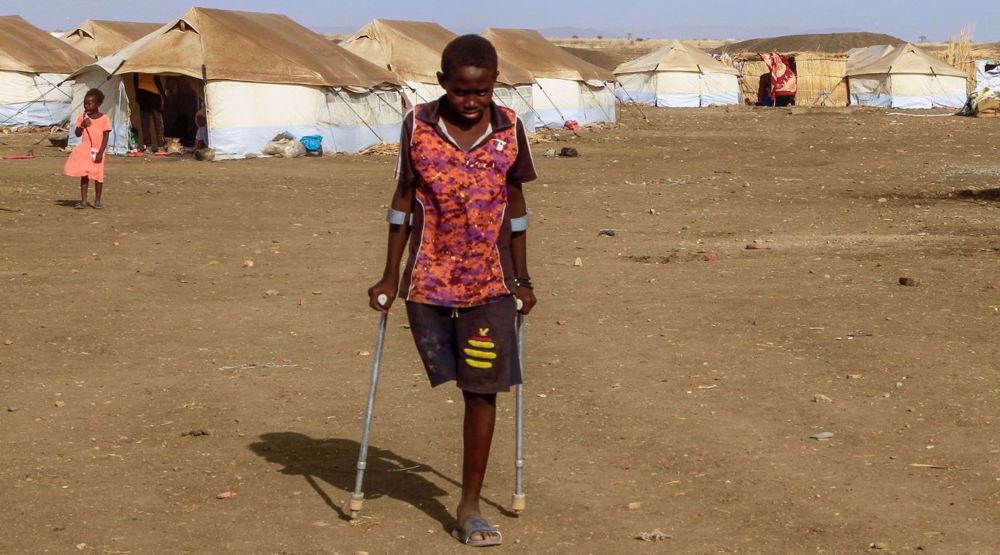
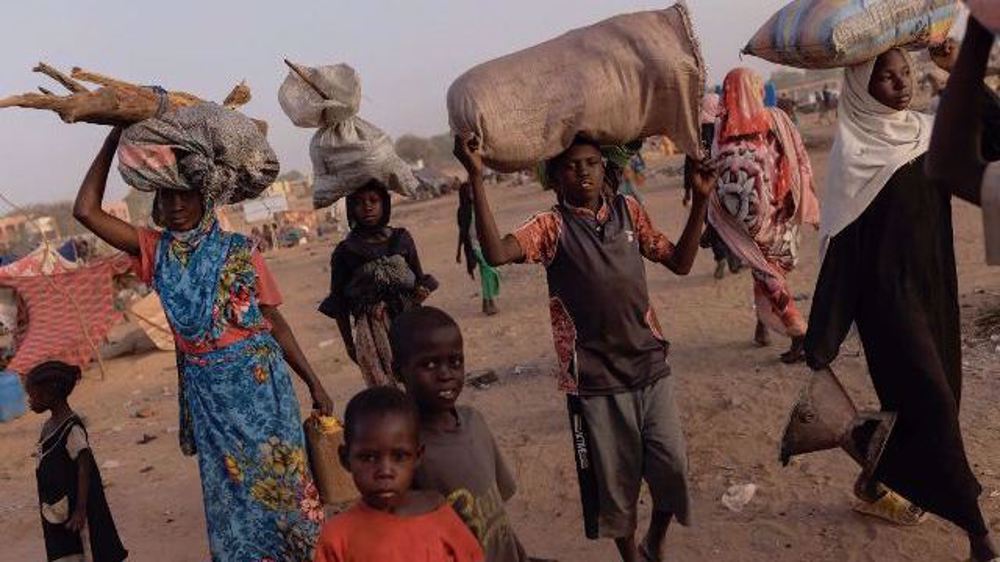
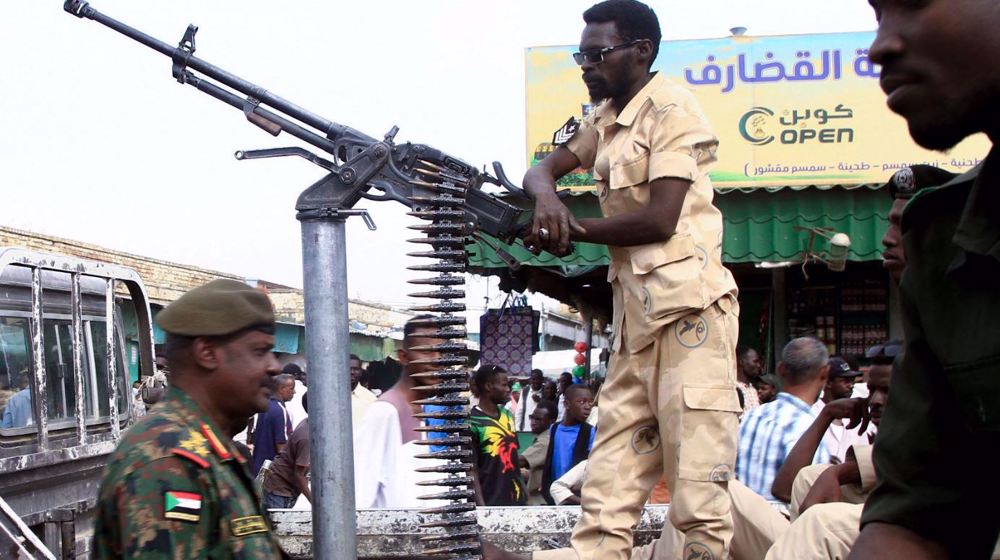



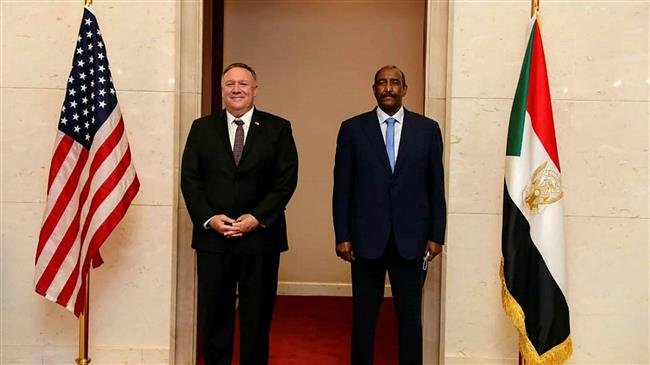




 This makes it easy to access the Press TV website
This makes it easy to access the Press TV website